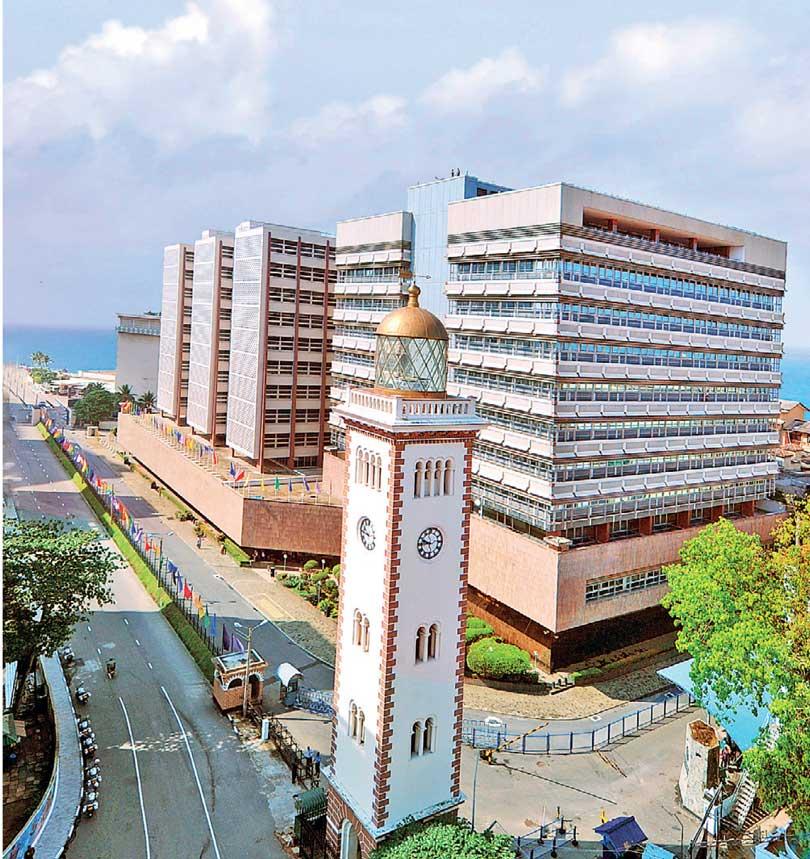Reply To:
Name - Reply Comment

In the case of Sri Lanka, the need for reorganisation of insolvent state-owned enterprises under professional management, separate from government control, presents additional challenges, and is imperative
Banks permitting these zombie firms to continue operating poses a significant impediment to growth and economic efficiency. These firms are typically the least efficient or productive, and compromise competitiveness by failing to maintain the necessary investment to remain competitive
 The government has announced an allocation of Rs 450 billion from the 2024 budget to recapitalise the banking sector. However, there is a risk that under prevailing banking practices, this recapitalisation will predominantly benefit business owners with insolvent enterprises. This is because the higher capital levels will enable banks to avoid declaring insolvent firms bankrupt and instead, renegotiate and/or extend the terms of their loans. Insolvent firms that continue to operate in the economy are commonly referred to internationally as “zombie firms”.
The government has announced an allocation of Rs 450 billion from the 2024 budget to recapitalise the banking sector. However, there is a risk that under prevailing banking practices, this recapitalisation will predominantly benefit business owners with insolvent enterprises. This is because the higher capital levels will enable banks to avoid declaring insolvent firms bankrupt and instead, renegotiate and/or extend the terms of their loans. Insolvent firms that continue to operate in the economy are commonly referred to internationally as “zombie firms”.
Banks permitting these zombie firms to continue operating poses a significant impediment to growth and economic efficiency. These firms are typically the least efficient or productive, and compromise competitiveness by failing to maintain the necessary investment to remain competitive. If Sri Lanka is to emerge from the crisis to a stronger and more resilient economy, the businesses that drive it need to be the most efficient and productive as possible. Unfortunately, following economic crises, zombie firms sprout up. After the 2007-2008 global financial crisis zombie firms increased from around 5% of total firms in Greece to almost 30%, and Cyprus saw them increase by around 15%.
Non-Performing Loan Resolution in Sri Lanka
 In Sri Lanka, non-performing loans (NPLs or Stage 3 loans) currently stand at 13.6% of total loans, while the provision for Stage 3 loans is around 46.9%. The ‘zombie debt’ is approximately 13% of Stage 3 loans. The recovery rate on insolvent loans is less than 45% of the loan amount. In comparison, regional economies that have successfully navigated similar crises in the past have significantly higher recovery rates: 80% for Malaysia, 70% for Thailand, and 65% for Indonesia.
In Sri Lanka, non-performing loans (NPLs or Stage 3 loans) currently stand at 13.6% of total loans, while the provision for Stage 3 loans is around 46.9%. The ‘zombie debt’ is approximately 13% of Stage 3 loans. The recovery rate on insolvent loans is less than 45% of the loan amount. In comparison, regional economies that have successfully navigated similar crises in the past have significantly higher recovery rates: 80% for Malaysia, 70% for Thailand, and 65% for Indonesia.
Despite the critical need for rapid and efficient NPL resolution, particularly in the form of seizure of assets and liquidation, banks have on numerous occasions, hesitated or failed to acknowledge the true extent of asset quality issues. This reluctance can be ascribed to various factors, including optimistic forecasts of economic recovery, concerns over capital limitations, and the potential negative impact on earnings following the accurate recognition of impaired assets.
Bankruptcy law in Sri Lanka contends with several deficiencies commonly observed in developing countries, including archaic concepts, a deficit of legislation for new developments, and a muddle of uncoordinated and overlapping regulations. Incremental amendments over the years have led to legal inconsistencies, thus complicating the enforcement process. Sri Lanka ought to incorporate elements of the ‘Companies Act 2014’ of Ireland, which provides for a clear, and most crucially, swift assertion of creditor rights, including liquidation. In the case of Sri Lanka, the need for reorganisation of insolvent state-owned enterprises under professional management, separate from government control, presents additional challenges, and is imperative.
Over the last two years, I have written extensively on the need for recapitalizing banks as a critical step in ensuring financial stability. This must happen. However, policymakers must carefully weigh the trade-offs associated with the rising prevalence of ‘zombie firms’. While short-term public support, such as credit guarantees and forbearance, may be necessary to alleviate insolvencies and maintain aggregate demand during financial shocks, caution is advised.
Permitting zombie firms’ access to public funds, directly or indirectly, without targeted policy support and strict measures is fraught with danger. It risks stifling the essential economic process of creative destruction – which is the dismantling of long-standing practices in order to make way for innovation – potentially leading to adverse effects on long-term productivity growth. Policymakers should prioritise strategies that address immediate challenges whilst also protecting the interests of taxpayers.
Prof. M. Udara Peiris is an Associate Professor of Economics at Oberlin College USA, and a Global Academic Fellow of Verité Research. More information can be found at www.udarapeiris.org.